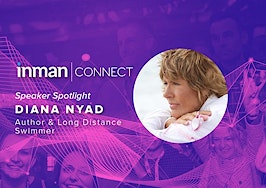Rand Fishkin, founder of the online marketing company Moz, is an author, blogger, entrepreneur, tech investor and a wizard.
Yes, that’s his official title.
The Wizard of Moz will be appearing on stage at Inman Connect in New York Jan. 16-20. We caught up with Fishkin to talk about how he got such a sick title, the advantages those in the real estate community have when it comes to search and digital marketing, and how maximize that advantage in 2017.
Don’t miss hearing Fishkin live at Inman Connect New York.
Tell me a little bit about your background and how you ended up as the Wizard of Moz?
Sure. I dropped out of college in 2001 to start building websites, and eventually fell into the SEO field.
I was very frustrated that SEO was such an opaque practice and, thus, started Moz with the goal of creating greater transparency into how search engines operate and how business-owners and marketers can influence their rankings and traffic.
As the founder, I got to choose my own title, and “wizard” seems like a fitting one, given that I do all sorts of stuff in the business and hopefully create some magic for our customers and community.
What one piece of advice would you give agents and brokers as it relates to their:
- Website? If your website looks and feels like every other real estate site out there, it’s going to be very hard to stand out from the massive online crowd. Uniqueness and being the exception to the rule are great competitive advantages.
- Content? Almost no one is successful creating web content with the focus of “converting visitors into buyers.” Ironically, the most successful content creators are those who are deeply empathetic to their audience and deliver what they’re seeking that no one else provides (or provides as well).
Don’t try to get people to convert and buy; try to get them to be incredibly satisfied and thankful with what you’ve offered. When you do that, they’ll remember you, and in the future, be more likely to recommend you and buy from you. - Social media? If a particular social channel doesn’t feel like a match for you, it’s OK to largely ignore it. You don’t need to be everywhere (though I would recommend at least owning your brand name on each platform in case you change your mind in the future).
Choose the platforms that match best with what you do well — maybe that’s visuals and photos and Instagram is the way forward.
Perhaps you like sharing news, content and short-form opinions, in which case, Twitter is a great match.
Or maybe you love answering specific questions with your depth of knowledge, and Q+A sites like Quora, Zillow or ActiveRain are the right match.
What do you see as some of the biggest changes/trends/issues that small businessowners and entreprenuers need to be aware of in the coming year as it relates to digital marketing?
There’s a big movement away from the “spray and pray” approach of simply putting yourself out there wherever you can, as often as you can, to a sense of signal:noise ratio.
The companies and entrepreneurs I see having the most success are those who’ve filtered down what they produce so that they’re delivering only the very best, even if you hear from them less often.
Your talk at Connect will focus on search and the ability to drive traffic. How fast are the rules around search changing?
The rules actually don’t change that much or that quickly — they’ve been surprisingly stable for a long time!
What does change are very specific, tactical opportunities, and what’s available to help give you an edge on the competition.
Google will launch new sorts of markup or feature new types of content in its results, or it will swing a bit more from giving depth of content a ranking advantage over pure link popularity — and if you identify those and become an early adopter, you can do very well.
What advice can you give to people who want to stay up on those opportunities?
It’s a bit self-serving, but every two weeks, Moz publishes a free newsletter called the Moz Top 10.
We feature 10 links that everyone who wants to stay up-to-date with SEO and digital marketing should check out, and since it’s bi-weekly, it’s usually pretty manageable.
If you’re looking for even more content and news, I like Search Engine Land, Inbound.org and, of course, the Moz Blog.
What advantages do you see those in the real estate industry having as it relates to search and digital marketing that perhaps other business owners might not have?
The hyper-local focus is definitely advantageous for real estate professionals, and so too is the constantly changing market demand and availability, which keeps searches fresh and interest high.
Real estate’s also something many people care about even when they aren’t actively engaged in a transaction, which means it has the potential to be news-worthy and interest-worthy in broader communities.
And, of course, real estate affects almost everyone directly and indirectly. Lots of powerful positives in this field :-)











